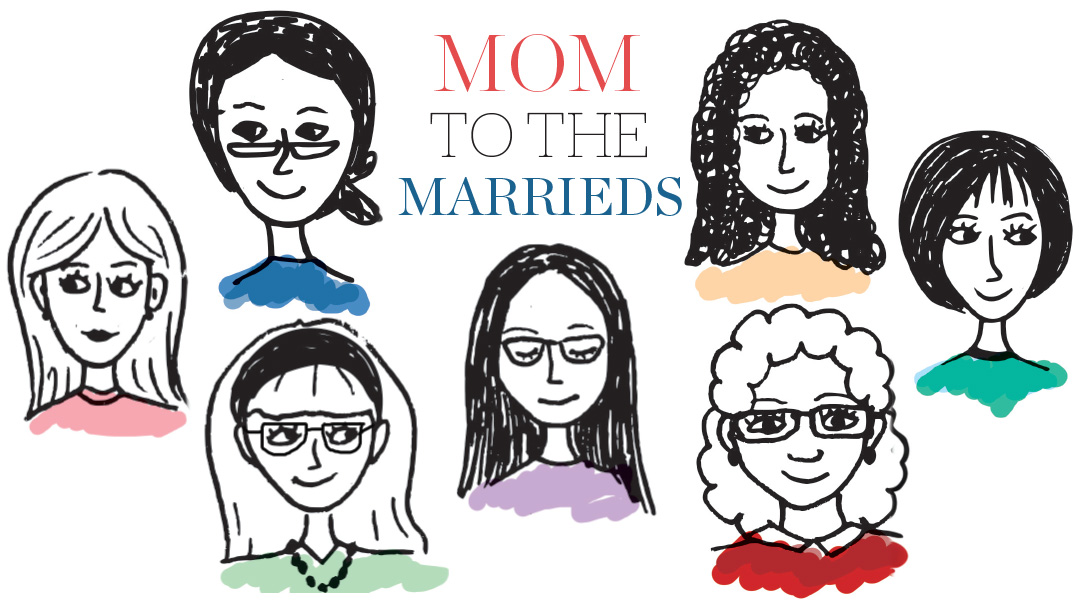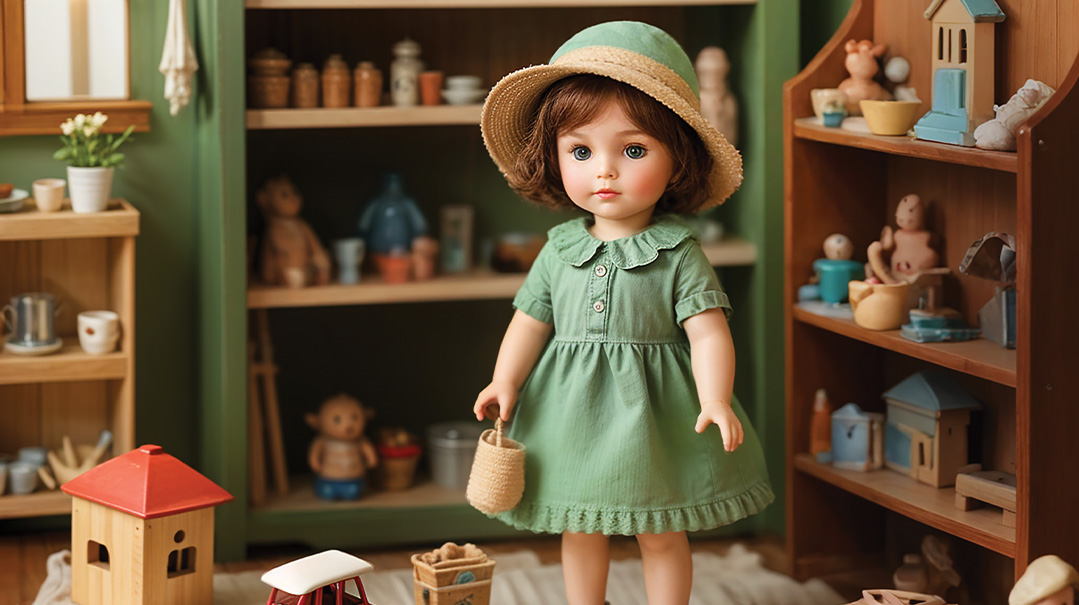Mom to the Marrieds
| September 26, 2023A roundtable discussion about the joys and the messes of parenting adult children

T
he verdict is in: life does not get simpler once your kids are grown.
Today’s parents walk a tightrope as they strive to balance respectful boundaries with spontaneous, warm relationships; mind their own business while providing emotional (and often financial) support; welcome the marrieds while respecting the singles at home; and give generously of their resources without neglecting themselves.
Family First moderated a roundtable discussion between women from different continents and ages and stages of life about the joys and the messes of parenting adult children.

People like to say that parents need to close their mouths and open their wallets. How does that play out in your life? Do you think it’s ever okay to offer unsolicited opinions on your child’s choices?
Estee
My parents didn’t really give us anything — they never really had anything extra to give — but they used to say whatever they wanted about our choices, whether financial, educational, or even how we dressed. It was a more old-world attitude, and I remember how we disliked being told what to do. With my own marrieds, I try very hard not to say anything at all, even when I disapprove of their choices.
Bracha
I live by my parents’ rule: The only time you jump in is when you’re asked. I married these kids off; they make their own decisions now.
I think that anytime I’ve offered advice when it wasn’t asked for, it came back to haunt me afterward in some way. So I learned the hard way to be very careful. Even if it’s my money on the table, unless they seek my advice, I will not initiate that conversation. Typically, it doesn’t go anywhere good.
Laya
It’s good advice, but that doesn’t make it easy. There have been times when I asked my husband, “Am I really not allowed to say anything?”
“And he’d says ‘Of course you’re allowed to say whatever you want, but where will it get you?’ ” So we come back to the same point. I know there are people out there who do speak up. Some give unsolicited advice and get away with it; some try and it backfires. So our path is not to advise unless asked; just to support.
You all sound like such wise and understanding parents… real role model material. So where do all the complaints about meddling parents and in-laws come from?
Estee
Not everyone has the same amount of self-awareness. I have friends who assure me they would never give their kids unsolicited advice, but then they mention they told their daughter-in-law that this one needs extra tutoring or they’re concerned about that one’s aggression. If I call them on it, they’ll say, “Oh, but that’s really important,” or “She doesn’t mind, I just pointed it out once casually.” They believe in the concept but don’t realize how much resentment that one innocent comment can breed. Maybe I even do it myself without realizing?
Ilana
And then there are people who really don’t mind getting advice themselves, so they can’t imagine that other people would. Like, who wouldn’t want helpful tips? They aren’t wired for that type of sensitivity. And that’s neither good nor bad, it’s just a different character type.
If you don’t offer advice, does that mean you can no longer influence your kids?
Bracha
My mother always says, if you listen to your children when they’re two, and listen when they’re five, and you listen when they’re 11, they’re going to come talk to you when they’re 15 and when they’re 18. And if you continue to listen, then they’ll come to you even after they’re married.
Debbie
And I agree with you that saying less is more. The less you say, the more you listen, the more they come to talk. If they come and ask you questions, you suggest — you never tell them what to do. With every child that got married, I told everybody to invest in zippers; I said the zipper market would be rising because of all the mouth-zipping that would be taking place in our home.
Laya
Also, when they do come to talk, my first question is always, “What does your spouse say?” It creates a level of trust, a feeling that we’re a team, that looking for an outside perspective is not a betrayal of the marriage.
What about when it’s not just a silly mistake? Do you speak up if you see your child wasting their (or your) money? Or neglecting to get a child services he or she needs, or refusing to vaccinate?
Debbie
There have been instances where we’ve told our children, “We’re here for you if you need. If you want to talk to our rav, or you need anything else from us, we are here for you.” There were also times that we asked straight out, “Are you okay financially?” The idea is, we’re not prying, but reminding them that we’re always available without judgment.
Laya
In the past, when we were really concerned, we’ve reached out and worked behind the scenes. When one of our kids was really slipping in his observance, we called a rav and told him, “This is what we noticed. Can you intervene or find out?” And I didn’t even follow up with the rav. My role is only to make sure that there’s a responsible authority with an eye on the situation.
Oops! We could not locate your form.







